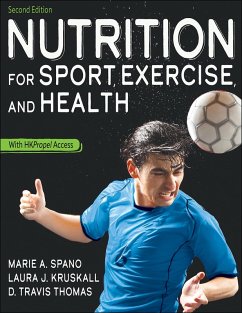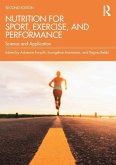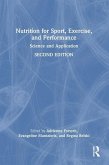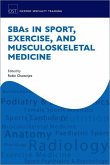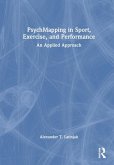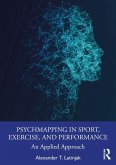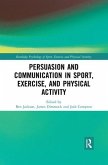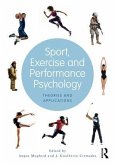- Broschiertes Buch
- Merkliste
- Auf die Merkliste
- Bewerten Bewerten
- Teilen
- Produkt teilen
- Produkterinnerung
- Produkterinnerung
Nutrition for Sport, Exercise, and Health, Second Edition, blends nutrition and exercise theory with practical applications to provide undergraduate students and professionals with a comprehensive introduction to the field.
Andere Kunden interessierten sich auch für
![Nutrition for Sport, Exercise, and Performance Nutrition for Sport, Exercise, and Performance]() Nutrition for Sport, Exercise, and Performance47,99 €
Nutrition for Sport, Exercise, and Performance47,99 €![Nutrition for Sport, Exercise, and Performance Nutrition for Sport, Exercise, and Performance]() Nutrition for Sport, Exercise, and Performance152,99 €
Nutrition for Sport, Exercise, and Performance152,99 €![Sbas in Sport, Exercise, and Musculoskeletal Medicine Sbas in Sport, Exercise, and Musculoskeletal Medicine]() Sbas in Sport, Exercise, and Musculoskeletal Medicine86,99 €
Sbas in Sport, Exercise, and Musculoskeletal Medicine86,99 €![Psychmapping in Sport, Exercise, and Performance Psychmapping in Sport, Exercise, and Performance]() Alexander T LatinjakPsychmapping in Sport, Exercise, and Performance142,99 €
Alexander T LatinjakPsychmapping in Sport, Exercise, and Performance142,99 €![PsychMapping in Sport, Exercise, and Performance PsychMapping in Sport, Exercise, and Performance]() Alexander T LatinjakPsychMapping in Sport, Exercise, and Performance50,99 €
Alexander T LatinjakPsychMapping in Sport, Exercise, and Performance50,99 €![Persuasion and Communication in Sport, Exercise, and Physical Activity Persuasion and Communication in Sport, Exercise, and Physical Activity]() Persuasion and Communication in Sport, Exercise, and Physical Activity45,99 €
Persuasion and Communication in Sport, Exercise, and Physical Activity45,99 €![Sport, Exercise, and Performance Psychology Sport, Exercise, and Performance Psychology]() Sport, Exercise, and Performance Psychology91,99 €
Sport, Exercise, and Performance Psychology91,99 €-
-
-
Nutrition for Sport, Exercise, and Health, Second Edition, blends nutrition and exercise theory with practical applications to provide undergraduate students and professionals with a comprehensive introduction to the field.
Hinweis: Dieser Artikel kann nur an eine deutsche Lieferadresse ausgeliefert werden.
Hinweis: Dieser Artikel kann nur an eine deutsche Lieferadresse ausgeliefert werden.
Produktdetails
- Produktdetails
- Verlag: Human Kinetics Publishers
- 2 ed
- Seitenzahl: 480
- Erscheinungstermin: 8. November 2023
- Englisch
- Abmessung: 220mm x 283mm x 26mm
- Gewicht: 1320g
- ISBN-13: 9781718207783
- ISBN-10: 1718207786
- Artikelnr.: 68536580
- Herstellerkennzeichnung
- Libri GmbH
- Europaallee 1
- 36244 Bad Hersfeld
- gpsr@libri.de
- Verlag: Human Kinetics Publishers
- 2 ed
- Seitenzahl: 480
- Erscheinungstermin: 8. November 2023
- Englisch
- Abmessung: 220mm x 283mm x 26mm
- Gewicht: 1320g
- ISBN-13: 9781718207783
- ISBN-10: 1718207786
- Artikelnr.: 68536580
- Herstellerkennzeichnung
- Libri GmbH
- Europaallee 1
- 36244 Bad Hersfeld
- gpsr@libri.de
Marie A. Spano, MS, RD, CSCS, CSSD, is one of the country’s leading sports nutritionists. She is the previous major league sports nutritionist for the Atlanta Braves (including the 2021 World Series champions), Atlanta Falcons, Atlanta Hawks, Atlanta Thrashers, Chicago Cubs, and Blackzilians (MMA). She combines science with practical experience to help athletes implement customized nutrition plans to maximize athletic performance, recovery, return to play, and career longevity. Also a nutrition communications expert, Spano has appeared on CNN; the Weather Channel; and NBC, ABC, Fox, and CBS affiliates. She has authored hundreds of magazine and trade publication articles in addition to book chapters in NSCA's Essentials of Personal Training and Essentials of Strength Training and Conditioning. She is coeditor of the first edition of NSCA's Guide to Sport and Exercise Nutrition. A three-sport collegiate athlete, Spano earned her master’s degree in nutrition from the University of Georgia, where she worked in the athletic department as a graduate assistant running the sports nutrition program. She earned her bachelor’s degree in exercise and sports science from the University of North Carolina at Greensboro, where she also ran Division I cross country. Her experiences as a college athlete provide her an effective perspective when working with athletes of all levels, especially student athletes, by giving her a firsthand understanding of how the demands of athletics and the psychological aspects of injury, sleep, recovery, and nutrition can affect an athlete’s overall well-being and performance. Laura J. Kruskall, PhD, RDN, CSSD, LD, FACSM, FAND, is an associate professor and program director in nutrition sciences at University of Nevada, Las Vegas (UNLV). She is also the director of the UNLV Nutrition Center. She has held numerous leadership positions at the local, state, and national levels, including serving on the board of trustees of the American College of Sports Medicine (ACSM) and as the cochair of the committee that authored “Standards of Practice and Standards of Professional Performance for Registered Dietitian Nutritionists (Competent, Proficient, and Expert) in Sports Nutrition and Dietetics,” published in the Journal of the Academy of Nutrition and Dietetics in 2014. She is currently serving on the ACSM Publications Committee and is a member of the editorial board for ACSM’s Health & Fitness Journal. She serves as the chair of the Dietitian Advisory Group for the Nevada Department of Health and Human Services, which leads governance of statute NRS.640E (licensure for dietitians in Nevada). Kruskall earned her PhD in nutrition from Penn State University. She holds a certificate of training in Level 2 Adult Weight Management from the Commission on Dietetic Registration, is certified as an exercise physiologist by ACSM, holds the Exercise Is Medicine credential from ACSM, and has the Board-Certified Specialist in Sports Dietetics (CSSD) credential. She earned fellow status with both ACSM and the Academy of Nutrition and Dietetics for her leadership and contributions to the profession. Her areas of teaching and practice expertise are sports and human performance nutrition, weight management, and medical nutrition therapy. In addition to her academic duties at the university, she is a nutrition consultant for Canyon Ranch Spa Club in Las Vegas. D. Travis Thomas, PhD, RDN, CSSD, LD, FAND, is an associate professor of clinical and sports nutrition and program director of the clinical nutrition masters program in the College of Health Sciences at the University of Kentucky. He teaches an advanced sports nutrition class for graduate students and a nutrition for injury prevention and rehabilitation class for undergraduate students. He also teaches and directs multiple clinical nutrition graduate courses and serves as director for the undergraduate certificate program in nutrition for human performance. Thomas holds the Board-Certified Specialist in Sports Dietetics (CSSD) credential. He has held multiple volunteer and leadership positions with the Academy of Nutrition and Dietetics, Sports and Human Performance Nutrition practice group, and the Commission on Dietetic Registration. He served as lead author on the 2016 “Nutrition and Athletic Performance” position stand endorsed by the Academy of Nutrition and Dietetics, American College of Sports Medicine, and Dietitians of Canada. In 2016, he was inducted as a fellow of the Academy of Nutrition and Dietetics, and in 2020 he received the highest award from the Sports, Cardiovascular, and Wellness (SCAN) Practice Group: the National Career Achievement Award. Thomas has 14 years of experience conducting human studies involving nutrition and exercise interventions across the life span. Since 2011, he has served as an investigator on funded research projects involving a wide range of nutrition issues associated with the preservation and enhancement of skeletal muscle function and performance. These studies have investigated the relationship between vitamin D and muscle metabolic function, nutrition, and physical function in aging and athletic populations; nutrition interventions to improve endothelial function and to reduce symptoms in patients with advanced heart failure; and nutritional strategies to preserve physical performance and lean body mass in patients with cancer.
Part I. The Big Picture
Chapter 1. Optimizing Health and Well-Being Throughout the Lifespan
Nutrients
General Nutrition Guidelines
Exercise
Sports Nutrition
Credentials and Scope of Practice
Summary
Chapter 2. Energy Metabolism
How Energy Fuels the Body
Human Energy Metabolism
Benefits of Training on Health and Athletic Performance
Biosynthesis and Storage Pathways in Metabolism
Hormonal Control of Metabolism
Measuring Energy Intake and Expenditure
Energy Availability in Sport
Summary
Part II. Role of Energy-Yielding Macronutrients
Chapter 3. Carbohydrate
Classification of Carbohydrate
Digestion and Absorption
Metabolism of Carbohydrate
Regulation of Glucose Metabolism
Glycemic Response
Carbohydrate as Fuel During Exercise
Role of Carbohydrate in Exercise Fatigue
Carbohydrate Recommendations
Carbohydrate Content of Foods
Carbohydrate and Health
Summary
Chapter 4. Fat
Digestion and Metabolism
Dietary Fats and Exercise
Lipids and Dietary Fat
Triglycerides and Health
Dietary Recommendations
Summary
Chapter 5. Protein
Amino Acids
Classification and Function of Protein
Digestion and Absorption
Metabolic Fate of Protein in the Body
Protein in the Diet
Protein Quality
Protein in Exercise and Sport
Vegetarianism and Veganism
Protein Deficiency and Excess Protein
Summary
Part III. Role of Micronutrients, Water, and Nutritional Supplements
Chapter 6. Vitamins
Fat-Soluble Vitamins
Water-Soluble Vitamins
Summary
Chapter 7. Minerals
Macrominerals
Trace Minerals
Summary
Chapter 8. Water and Electrolytes
Water
Electrolytes
Water, Electrolytes, and Exercise Performance
Hydration Assessment
Hydration Recommendations for Exercise
Summary
Chapter 9. Nutritional Supplements and Other Substances Commonly Used in
Sport
Popularity of Supplement Use in Sport
Regulation of Dietary Supplements
Evaluation of Dietary Supplements
Common Products and Supplements Used for Performance Enhancement
Drugs Commonly Used in Sport
Summary
Part IV. Application of Nutrition for Sport, Exercise, and Health
Chapter 10. Body Weight and Composition
Factors Contributing to Body Weight and Composition
Body Weight and Composition Concerns in Activity and Sport
Estimating Body Composition
Summary
Chapter 11. Nutrition for Aerobic Endurance
ATP Production During Endurance Activities
Energy-Yielding Macronutrient Requirements of Endurance Athletes
Food Selection to Meet Nutrient Requirements
Types of Carbohydrate and Performance
Unique Challenges Facing Endurance Athletes
General Recovery From Training
Effects of Endurance Training on Macronutrient Metabolism
Summary
Chapter 12. Nutrition for Resistance Training
Nutrition Before Resistance Training
Nutrition During Resistance Training
Nutrition After Resistance Training
How Daily Dietary Intake Affects Muscle
How Dieting Affects Muscle
Nutrients That Support Muscle Functioning
Sport Supplements for Resistance Training
Summary
Chapter 13. Changing Weight and Body Composition
Understanding Body Fat
Decreasing Body Fat
Gaining Muscle Mass
Losing Fat and Gaining Muscle at the Same Time
Summary
Chapter 14. Nutrition Concerns for Special Populations
Children and Adolescents
Masters Athletes
People With Diabetes and Metabolic Syndrome
Pregnant Women
Vegetarian Populations
People With Disordered Eating and Eating Disorders
Summary
Chapter 1. Optimizing Health and Well-Being Throughout the Lifespan
Nutrients
General Nutrition Guidelines
Exercise
Sports Nutrition
Credentials and Scope of Practice
Summary
Chapter 2. Energy Metabolism
How Energy Fuels the Body
Human Energy Metabolism
Benefits of Training on Health and Athletic Performance
Biosynthesis and Storage Pathways in Metabolism
Hormonal Control of Metabolism
Measuring Energy Intake and Expenditure
Energy Availability in Sport
Summary
Part II. Role of Energy-Yielding Macronutrients
Chapter 3. Carbohydrate
Classification of Carbohydrate
Digestion and Absorption
Metabolism of Carbohydrate
Regulation of Glucose Metabolism
Glycemic Response
Carbohydrate as Fuel During Exercise
Role of Carbohydrate in Exercise Fatigue
Carbohydrate Recommendations
Carbohydrate Content of Foods
Carbohydrate and Health
Summary
Chapter 4. Fat
Digestion and Metabolism
Dietary Fats and Exercise
Lipids and Dietary Fat
Triglycerides and Health
Dietary Recommendations
Summary
Chapter 5. Protein
Amino Acids
Classification and Function of Protein
Digestion and Absorption
Metabolic Fate of Protein in the Body
Protein in the Diet
Protein Quality
Protein in Exercise and Sport
Vegetarianism and Veganism
Protein Deficiency and Excess Protein
Summary
Part III. Role of Micronutrients, Water, and Nutritional Supplements
Chapter 6. Vitamins
Fat-Soluble Vitamins
Water-Soluble Vitamins
Summary
Chapter 7. Minerals
Macrominerals
Trace Minerals
Summary
Chapter 8. Water and Electrolytes
Water
Electrolytes
Water, Electrolytes, and Exercise Performance
Hydration Assessment
Hydration Recommendations for Exercise
Summary
Chapter 9. Nutritional Supplements and Other Substances Commonly Used in
Sport
Popularity of Supplement Use in Sport
Regulation of Dietary Supplements
Evaluation of Dietary Supplements
Common Products and Supplements Used for Performance Enhancement
Drugs Commonly Used in Sport
Summary
Part IV. Application of Nutrition for Sport, Exercise, and Health
Chapter 10. Body Weight and Composition
Factors Contributing to Body Weight and Composition
Body Weight and Composition Concerns in Activity and Sport
Estimating Body Composition
Summary
Chapter 11. Nutrition for Aerobic Endurance
ATP Production During Endurance Activities
Energy-Yielding Macronutrient Requirements of Endurance Athletes
Food Selection to Meet Nutrient Requirements
Types of Carbohydrate and Performance
Unique Challenges Facing Endurance Athletes
General Recovery From Training
Effects of Endurance Training on Macronutrient Metabolism
Summary
Chapter 12. Nutrition for Resistance Training
Nutrition Before Resistance Training
Nutrition During Resistance Training
Nutrition After Resistance Training
How Daily Dietary Intake Affects Muscle
How Dieting Affects Muscle
Nutrients That Support Muscle Functioning
Sport Supplements for Resistance Training
Summary
Chapter 13. Changing Weight and Body Composition
Understanding Body Fat
Decreasing Body Fat
Gaining Muscle Mass
Losing Fat and Gaining Muscle at the Same Time
Summary
Chapter 14. Nutrition Concerns for Special Populations
Children and Adolescents
Masters Athletes
People With Diabetes and Metabolic Syndrome
Pregnant Women
Vegetarian Populations
People With Disordered Eating and Eating Disorders
Summary
Part I. The Big Picture
Chapter 1. Optimizing Health and Well-Being Throughout the Lifespan
Nutrients
General Nutrition Guidelines
Exercise
Sports Nutrition
Credentials and Scope of Practice
Summary
Chapter 2. Energy Metabolism
How Energy Fuels the Body
Human Energy Metabolism
Benefits of Training on Health and Athletic Performance
Biosynthesis and Storage Pathways in Metabolism
Hormonal Control of Metabolism
Measuring Energy Intake and Expenditure
Energy Availability in Sport
Summary
Part II. Role of Energy-Yielding Macronutrients
Chapter 3. Carbohydrate
Classification of Carbohydrate
Digestion and Absorption
Metabolism of Carbohydrate
Regulation of Glucose Metabolism
Glycemic Response
Carbohydrate as Fuel During Exercise
Role of Carbohydrate in Exercise Fatigue
Carbohydrate Recommendations
Carbohydrate Content of Foods
Carbohydrate and Health
Summary
Chapter 4. Fat
Digestion and Metabolism
Dietary Fats and Exercise
Lipids and Dietary Fat
Triglycerides and Health
Dietary Recommendations
Summary
Chapter 5. Protein
Amino Acids
Classification and Function of Protein
Digestion and Absorption
Metabolic Fate of Protein in the Body
Protein in the Diet
Protein Quality
Protein in Exercise and Sport
Vegetarianism and Veganism
Protein Deficiency and Excess Protein
Summary
Part III. Role of Micronutrients, Water, and Nutritional Supplements
Chapter 6. Vitamins
Fat-Soluble Vitamins
Water-Soluble Vitamins
Summary
Chapter 7. Minerals
Macrominerals
Trace Minerals
Summary
Chapter 8. Water and Electrolytes
Water
Electrolytes
Water, Electrolytes, and Exercise Performance
Hydration Assessment
Hydration Recommendations for Exercise
Summary
Chapter 9. Nutritional Supplements and Other Substances Commonly Used in
Sport
Popularity of Supplement Use in Sport
Regulation of Dietary Supplements
Evaluation of Dietary Supplements
Common Products and Supplements Used for Performance Enhancement
Drugs Commonly Used in Sport
Summary
Part IV. Application of Nutrition for Sport, Exercise, and Health
Chapter 10. Body Weight and Composition
Factors Contributing to Body Weight and Composition
Body Weight and Composition Concerns in Activity and Sport
Estimating Body Composition
Summary
Chapter 11. Nutrition for Aerobic Endurance
ATP Production During Endurance Activities
Energy-Yielding Macronutrient Requirements of Endurance Athletes
Food Selection to Meet Nutrient Requirements
Types of Carbohydrate and Performance
Unique Challenges Facing Endurance Athletes
General Recovery From Training
Effects of Endurance Training on Macronutrient Metabolism
Summary
Chapter 12. Nutrition for Resistance Training
Nutrition Before Resistance Training
Nutrition During Resistance Training
Nutrition After Resistance Training
How Daily Dietary Intake Affects Muscle
How Dieting Affects Muscle
Nutrients That Support Muscle Functioning
Sport Supplements for Resistance Training
Summary
Chapter 13. Changing Weight and Body Composition
Understanding Body Fat
Decreasing Body Fat
Gaining Muscle Mass
Losing Fat and Gaining Muscle at the Same Time
Summary
Chapter 14. Nutrition Concerns for Special Populations
Children and Adolescents
Masters Athletes
People With Diabetes and Metabolic Syndrome
Pregnant Women
Vegetarian Populations
People With Disordered Eating and Eating Disorders
Summary
Chapter 1. Optimizing Health and Well-Being Throughout the Lifespan
Nutrients
General Nutrition Guidelines
Exercise
Sports Nutrition
Credentials and Scope of Practice
Summary
Chapter 2. Energy Metabolism
How Energy Fuels the Body
Human Energy Metabolism
Benefits of Training on Health and Athletic Performance
Biosynthesis and Storage Pathways in Metabolism
Hormonal Control of Metabolism
Measuring Energy Intake and Expenditure
Energy Availability in Sport
Summary
Part II. Role of Energy-Yielding Macronutrients
Chapter 3. Carbohydrate
Classification of Carbohydrate
Digestion and Absorption
Metabolism of Carbohydrate
Regulation of Glucose Metabolism
Glycemic Response
Carbohydrate as Fuel During Exercise
Role of Carbohydrate in Exercise Fatigue
Carbohydrate Recommendations
Carbohydrate Content of Foods
Carbohydrate and Health
Summary
Chapter 4. Fat
Digestion and Metabolism
Dietary Fats and Exercise
Lipids and Dietary Fat
Triglycerides and Health
Dietary Recommendations
Summary
Chapter 5. Protein
Amino Acids
Classification and Function of Protein
Digestion and Absorption
Metabolic Fate of Protein in the Body
Protein in the Diet
Protein Quality
Protein in Exercise and Sport
Vegetarianism and Veganism
Protein Deficiency and Excess Protein
Summary
Part III. Role of Micronutrients, Water, and Nutritional Supplements
Chapter 6. Vitamins
Fat-Soluble Vitamins
Water-Soluble Vitamins
Summary
Chapter 7. Minerals
Macrominerals
Trace Minerals
Summary
Chapter 8. Water and Electrolytes
Water
Electrolytes
Water, Electrolytes, and Exercise Performance
Hydration Assessment
Hydration Recommendations for Exercise
Summary
Chapter 9. Nutritional Supplements and Other Substances Commonly Used in
Sport
Popularity of Supplement Use in Sport
Regulation of Dietary Supplements
Evaluation of Dietary Supplements
Common Products and Supplements Used for Performance Enhancement
Drugs Commonly Used in Sport
Summary
Part IV. Application of Nutrition for Sport, Exercise, and Health
Chapter 10. Body Weight and Composition
Factors Contributing to Body Weight and Composition
Body Weight and Composition Concerns in Activity and Sport
Estimating Body Composition
Summary
Chapter 11. Nutrition for Aerobic Endurance
ATP Production During Endurance Activities
Energy-Yielding Macronutrient Requirements of Endurance Athletes
Food Selection to Meet Nutrient Requirements
Types of Carbohydrate and Performance
Unique Challenges Facing Endurance Athletes
General Recovery From Training
Effects of Endurance Training on Macronutrient Metabolism
Summary
Chapter 12. Nutrition for Resistance Training
Nutrition Before Resistance Training
Nutrition During Resistance Training
Nutrition After Resistance Training
How Daily Dietary Intake Affects Muscle
How Dieting Affects Muscle
Nutrients That Support Muscle Functioning
Sport Supplements for Resistance Training
Summary
Chapter 13. Changing Weight and Body Composition
Understanding Body Fat
Decreasing Body Fat
Gaining Muscle Mass
Losing Fat and Gaining Muscle at the Same Time
Summary
Chapter 14. Nutrition Concerns for Special Populations
Children and Adolescents
Masters Athletes
People With Diabetes and Metabolic Syndrome
Pregnant Women
Vegetarian Populations
People With Disordered Eating and Eating Disorders
Summary

